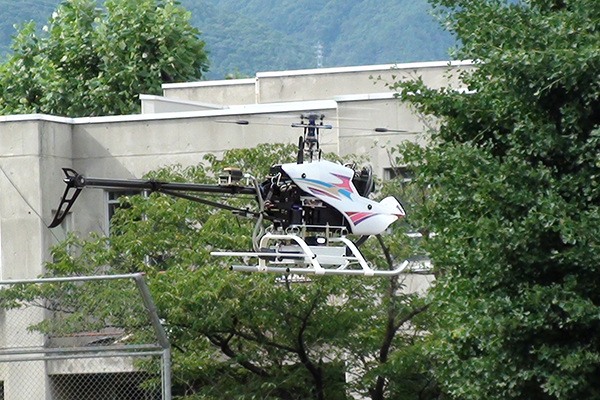Graduate School of Science and Technology(Master's Program)>Department of Textile Science and Technology>Mechanical Engineering and Robotics Division
Mechanical Engineering and Robotics Division
Overview
The main research examples of this division are as follows:
(1) Design and application technology of textile and particle-reinforced composite materials and structures. Invention and evaluation of gradient function and synergy function materials. Prediction of destruction and service life. Microscopic-macroscopic correlation analysis. Environmental responding and recycling technology. Development of intelligent material and smart structures. Appearance of functions by using nanotechnology (e.g., sound insulation function, vibration damping function, self-repair function). Invention and application of nanofibers. Analysis of carbon-nanotube vibration and liquid transportation.
(2) Development of robots (milking robots, superconducting looms, hand spinning robots, disabled rehabilitation systems, etc.). Micromachines (small-sized movement mechanisms using piezoelectric bodies, ultra-fine-fiber mechanics evaluation systems, lead-free piezoelectric devices, etc.). Measurement and control technologies (high-performance handling and motion control of flexible objects, electric and electronic measurements of living bodies, activated carbon fibers, etc.). New-generation automobile system development (solar cars, fuel-cell cars, formula cars, etc.).
(3) Development of environmental purification technologies. Flow and heat transfer of double diffusion convection. Absorption-promoting technologies for absorption heat pumps. Thermal-fluid numerical analysis. Simple measuring method of thermal property values. Heat transfer control in energy technology and various advanced technologies. Flow visualization technologies. Heat flow accompanied by boiling, condensation, or phase change. Two-phase flow. Micro heat transfer fluid. Thermal and nuclear power generation. Others.

Research of autonomous small-sized unmanned helicopters (which can fly by autonomous control technology, without human operation)
Main Research Theme
- Mobile objects using new energy, and use of biofuel cells, fuel-cell catalysts, and biomass materials
- Development and evaluation of nanomaterial composite technologies, and smart materials and structures. Their health monitoring
- Research of important energy technologies, such as heat flow phenomenon technology, thermal property measurement technology, and environmental purification technologies
- Research of strong, light, and easy-to-recycle composite materials by using super fibers
- Understanding human and living-body skills, and their expansion to robots. Use of dynamics of machines, and their application
- Nanofiber equipment development, and its application to electric and electronic fields, and medical field
- Analysis of carbon-nanotube mechanical properties by using computational mechanics, and their applications
- Research of autonomous control of robots and unmanned vehicle systems
- Analysis and evaluation experiments of effects of heat of fires on materials and human bodies, and their application to new material design